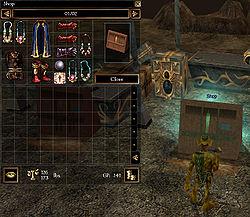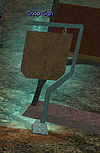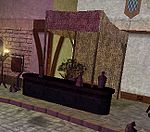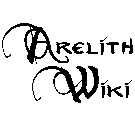Shop: Difference between revisions
NaturalyMK2 (talk | contribs) infobox and expand |
No edit summary |
||
| Line 4: | Line 4: | ||
Most shops are also tied to [[Citizenship_system|Settlements]] and as such are under the control of settlement leaders. This includes the ability to revoke ownership in addition to setting and collecting taxes. | Most shops are also tied to [[Citizenship_system|Settlements]] and as such are under the control of settlement leaders. This includes the ability to revoke ownership in addition to setting and collecting taxes. | ||
As a major, mandatory rule, you may own one shop per player ( not per character) only. Temporary shops are excluded from this rule. | |||
Revision as of 21:52, 1 October 2020
| Arelith Wiki | |
| Character Creation | |
|---|---|
| Creation (New Players Guide) Race - Deity - Class Gifts - Backgrounds - Alignment Marks - Epic Sacrifice Customization - Head List - Builds | |
| Character Systems | |
| Description - Disguise / Covered Languages - Experience - Quests Pickpocket - Rest - Role Play Bonus Death - Lycanthropy - Investigate Sequencers - Runic Sequencers | |
| World Systems | |
| Settlements - Factions Quarters - Shops - Taverns - Banks Riding - Sailing - Boons Communication - Portals Time - Containers/Bags Radiant Heart - Assassin's Guild Sencliff's Pirates | |
| Item Creation Systems | |
| Alchemy - Art Craft - Carpentry Herb - Smith - Tailor Dweomercraft - Runes | |
| Armor Weapons - Melee / Ranged / Siege Resources - Poison | |
| Arelith Changes | |
| Classes - Skills - Feats - Trap Summons - Familiar Reskins Spells (list) - Misc | |
| Help | |
| Rules - Roleplay - Maps Console Commands Common Bugs - Staff Support Tickets - Character Remake [The Astrolabe] | |
Shops are stores run by players. They allow characters to make items available for sale at all times. Most all items can be put for sale in stores and players are free to set any price they like.
Most shops are also tied to Settlements and as such are under the control of settlement leaders. This includes the ability to revoke ownership in addition to setting and collecting taxes.
As a major, mandatory rule, you may own one shop per player ( not per character) only. Temporary shops are excluded from this rule.
Inventory


Each shop when accessed by a potential customer will present them with an inventory listing the items available for purchase, the customer can then remove and inspect each item, removal of an item from the inventory presents the user with a dialogue option for purchase which also displays the price of the goods.
Shop owners can speak the price before adding an item for sale to set the price. Owners can also use the sign to change prices and change other options, such as allowing customers to buy individual items from a stack.
In addition, interacting with the store sign gives a log of purchases and the time of purchase.
Purchasing

The shop owner may mark the value of goods up or down, each shop inventory comes with a sign adjacent , the markup value at a particular store is displayed through the signs on-use dialogue and can be modified by the owner as required. Items are valued based on their blueprint gold value and then adjusted accordingly.
Temporary Shops

Temporary shops work exactly like usual player owned shops, but must be interacted with regularly. A temporary shop that has not been interacted with by the owner in the last hour will become available for sale once again. If no one buys the shop in the intervening time, the owner may reclaim the shop simply by interacting with it.
